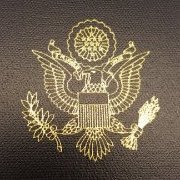[Myanmar] Burma President Vows To Protect Muslim Rights
-
Recently Browsing 0 members
- No registered users viewing this page.
-
Topics
-
-
Popular Contributors
-
-
Latest posts...
-
180
The face of Dem lunatics …
James Carville, calls the democrats "a cracked out clown car..." So true, makes one laugh at the democrat lunatic party of morons. The cracked out clown car democrats are in BAD Shape. Trump says hello losers! -
183
EU Russia threatens UK with nuclear annihilation in unhinged WW3 rant
We, the UK, should let him know any more threats like that and we will send Russia Starmer, Rayner, Cooper and Reaves. That will make Putin change his mind. -
8
Crime Ex-Beckham Villa Among Properties Raided in Koh Samui Building Crackdown
That's the process... Convince foreigners to buy into a fantasy (owning property on a Thai island), build it to spec without permits (permissions, etc ), and then reclam the property in the name of the Kingdom. -
114
Middle East Macron's Bold Move: France to Recognise Palestinian State
This is only 3 minutes long but worth watching. A retired Green Beret Lt. Colonel has revealed why he resigned from his work with US- and Israel-backed Gaza Humanitarian Foundation (GHF) aid distribution centres. https://www.bbc.co.uk/news/videos/cy8k8045nx9o -
0
I'm looking to buy a new laptop, 15K baht - 30k baht
I went with my friend recently to JIB at Tukcom and I was surprised he got a decent deal(16K down from 18K) for a Lenovo 15.6 inch Ryzen 7 512NVMe 16GB 1.62Kg laptop w/Office and 2 yr. warranty. I'm tempted to buy the same model for myself as mine is long gone. However, I would like backlight and fingerprint sensor these features really make my life much easier. I could buy from Amazon for about 20K but it's a little risky I'd prefer to buy here in Thailand. Any ideas? -
14
Your Panels Are Worthless Now”: Silent Turbine That Gives 1500 kWh at Home Ignites Class War
Liam will generate between 300 and 2,500 kilowatts annually
-
-
Popular in The Pub













Recommended Posts
Create an account or sign in to comment
You need to be a member in order to leave a comment
Create an account
Sign up for a new account in our community. It's easy!
Register a new accountSign in
Already have an account? Sign in here.
Sign In Now